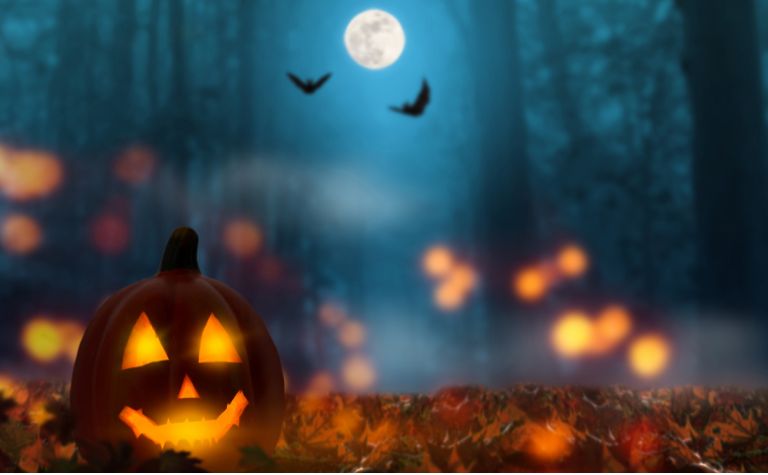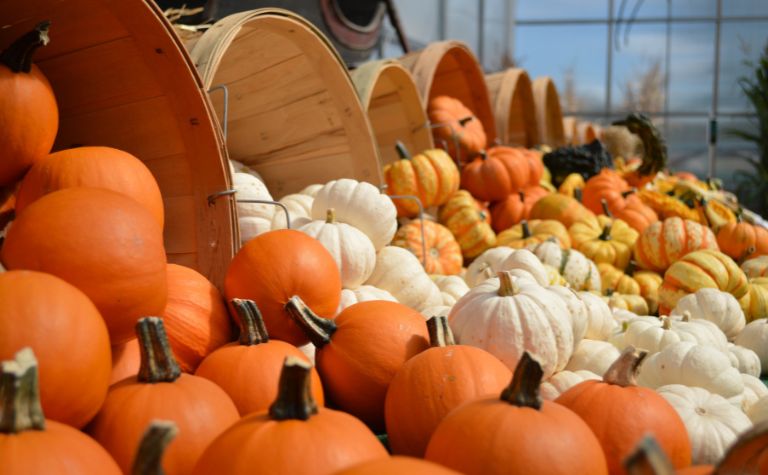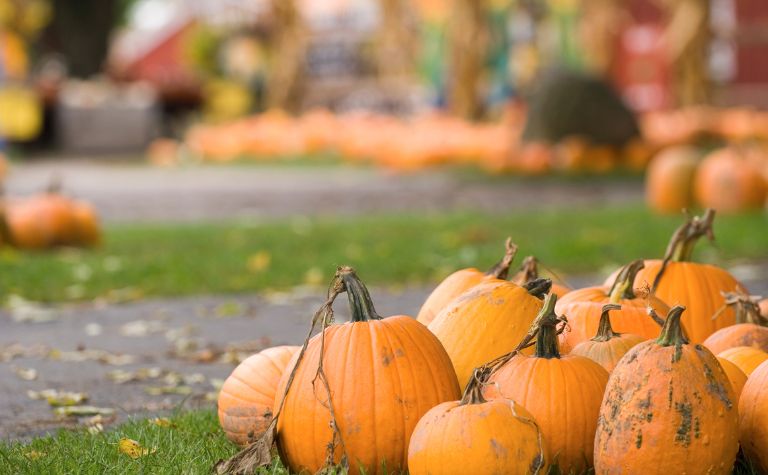Many countries around the world observe Halloween on October 31st, each with its own traditions. In America, Halloween traditions include carving pumpkins into jack-o’-lanterns, dressing up in costumes, and going trick-or-treating door-to-door for candy. Some Christians fully participate in the traditions of the holiday, while others attend harvest parties and similar events. Others don’t do anything special at all. So why don’t some Christians observe Halloween?
Some Christians don’t celebrate Halloween because of its pagan roots and its present-day associations with evil. Most Christians understand that children and families who dress in costumes and go trick-or-treating don’t have ungodly intentions. Nevertheless, they believe it’s unwise to observe Halloween.
What are Halloween’s pagan origins? Why do some Christians believe Halloween has roots all the way back to Noah’s life? Why did the Christian Church Move All Saints Day? Keep reading to learn the answers to these questions and others.
Also see What Is A Christian Apologist? to learn more.

Does Halloween have pagan origins?
Historians trace the origins of Halloween to ancient Europe, in the areas of Great Britain and France, before the birth of Jesus Christ. At the end of summer, Celtic religious leaders called druids made sacrifices to pagan gods, which also marked the beginning of the Celtic year. The Fall also signaled the gradual decrease of daylight and increase of night, when evil spirits increased their sinister activity.
Some Halloween traditions come from ancient Celtic practices. For example, the Celts believed that a god called Samhain attacked people and that dressing up in disguises confused and mislead him. Some historians believe that the story of Samhain is the origin of dressing up in costumes.
Is Halloween related to the great flood of Noah’s day?
Many cultures around the world have similar celebrations around the time of Halloween. Many festivals and commemorations observe a day of the dead, many of which include sacrifices. Many of these celebrations date back thousands of years. How is this possible? What common source do so many people groups in the world share? Some Christians suggest that the flood of Noah is the origin.
Author Bodie Hodge explains, “When Noah and his family exited the Ark, they offered sacrifices to God (Genesis 8:18–9:1); of course, deviations in the manner of this sacrifice over the years and its meaning would have varied down through the ages. Based on the evidence, this seems to be the most likely explanation.”
He continues, “Other Christians in the past have recognized this connection. For example, Alfred Rehwinkel, a professor of theology at Concordia Seminary, realized that nations throughout the world had a similar day of the dead, and he directly related this to the Flood of Noah’s day. John Urquhart pointed this out as far back as 1931, soon after the holiday of Halloween gained prominence in the United States.” [1]
Also see How Did Christianity Spread? to learn more.

Why did the Christian Church Move All Saints Day?
Historians teach that Christians in the eastern part of the Roman Empire in the third century used to set aside a day to celebrate saints of the church who were in heaven. Churches celebrated the day in the Spring for the first several centuries of its existence.
Eventually, the churches moved their observance of the day to November 1 under Pope Gregory III in the 8th century and referred to the celebration as All Hallow’s Day. The day before became known as “All-Hallow E’en.” [2]
During the 20th century, Halloween turned into a secular holiday, detached from historical associations with Christianity. Christians who participate in Halloween mostly do for the same reasons as non-Christians — they think it’s fun to dress up in costume and collect candy from neighbors.
Also see What Is the Basic Principle of Christian Ethics? to learn more.

What do many Christians do on Halloween?
Some Christians who are opposed to participating in traditional Halloween activities, make a point not to do anything. Yet, according to a 2016 poll, only 8% of Christians don’t mark Halloween in any way. In other words, they are at home, work, or church, and go about their normal routines.
Additionally, approximately two-thirds of all Protestant pastors encourage their congregation to use the day to invite friends to a church event, like Trunk-or-Treat (more below). [3] One advocate of churches using Halloween for ministry writes:
“Parents look for safe venues to take their kids for Halloween, and churches oftentimes make their way to the top of the list! How can we as a church make this an amazing outreach opportunity? What can we do to motivate our children to bring their friends to learn about God? How can we open the eyes of the unchurched to see God while enlightening our churched children?” [4]
Harvest Parties: Some church host Harvest Parties, which have similarities to Halloween parties. The difference is that there are no images or references to evil spirits or sinister activities. Some churches also include a gospel message to tell visiting children about Jesus Christ. Churches promote such events as a safer alternative than going door-to-door and an option that includes Bible teaching.
Trunk-or-Treat: Some churches host trunk-or-treat parties in which kids trick-or-treat in a parking lot. Vehicles arrive early, open their trunk, which are often decorated, and pass out candy to kids who walk around the lot in costumes. Some people view this option as a safer way to collect candy.
One pastor’s advice to Christians on Halloween
Pastor John Piper writes, “I hope all Christians think biblically and carefully about any holiday, any event, and how they might be salt and light in it. And if they feel like this can be of value to the kids in some way, to teach them—if it can be an innocent way of enjoying God’s grace and teaching lessons—so be it… The same thing with Christmas and birthdays and Easter and worshiping on Sunday. All of these things have pagan connections.”
He continues, “I want to be loose and broad and give freedom to believers to find their way to be most effective. So I respect those who are renouncing Halloween as too connected with evil. And I respect those who say, ‘No, let’s redeem it and penetrate it and use it.'” [5]
Also see What Does the Name Christian Mean? to learn more.
References:
[1] Source
[2] Source
[3] Source
[4] Source
[5] Source
Related Questions
People seek counseling for various reasons, such as receiving help with important relationships like marriage, healing from past trials and trauma, and learning how to cope with mental illness in...
People who identify as Christians have different views on the Church, society, and government. Some believe it's important to maintain traditional values and fight to ensure their survival. Others...
